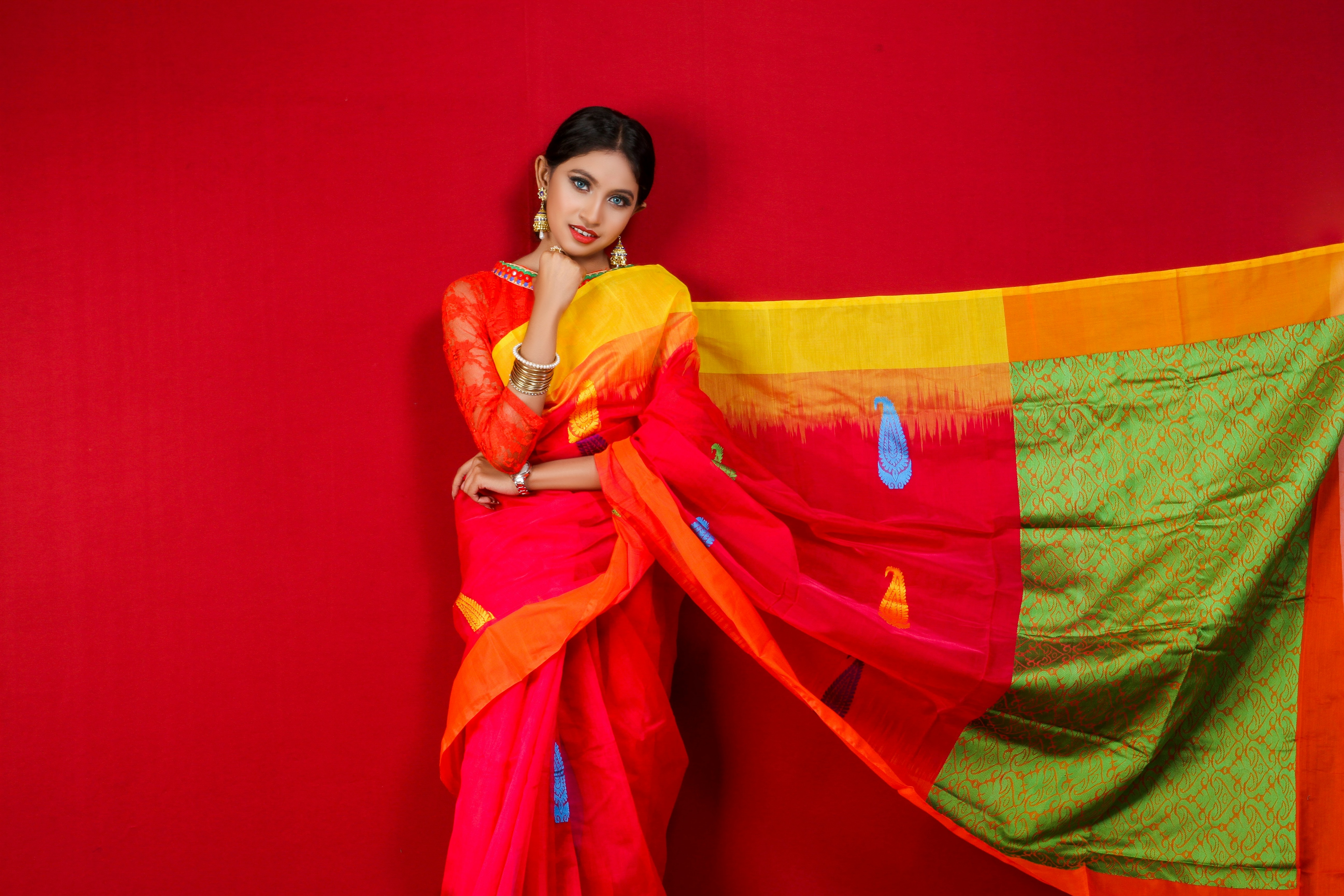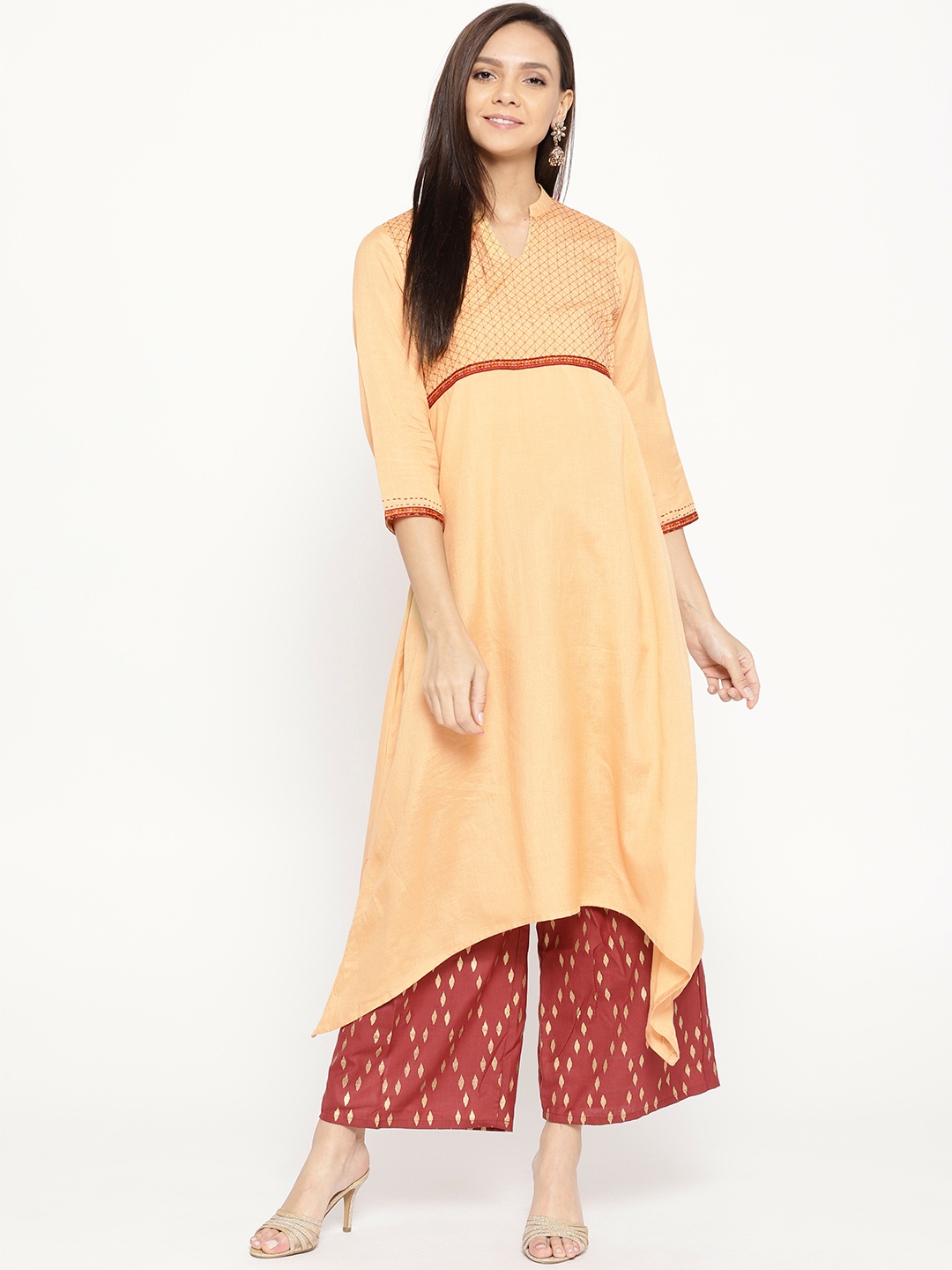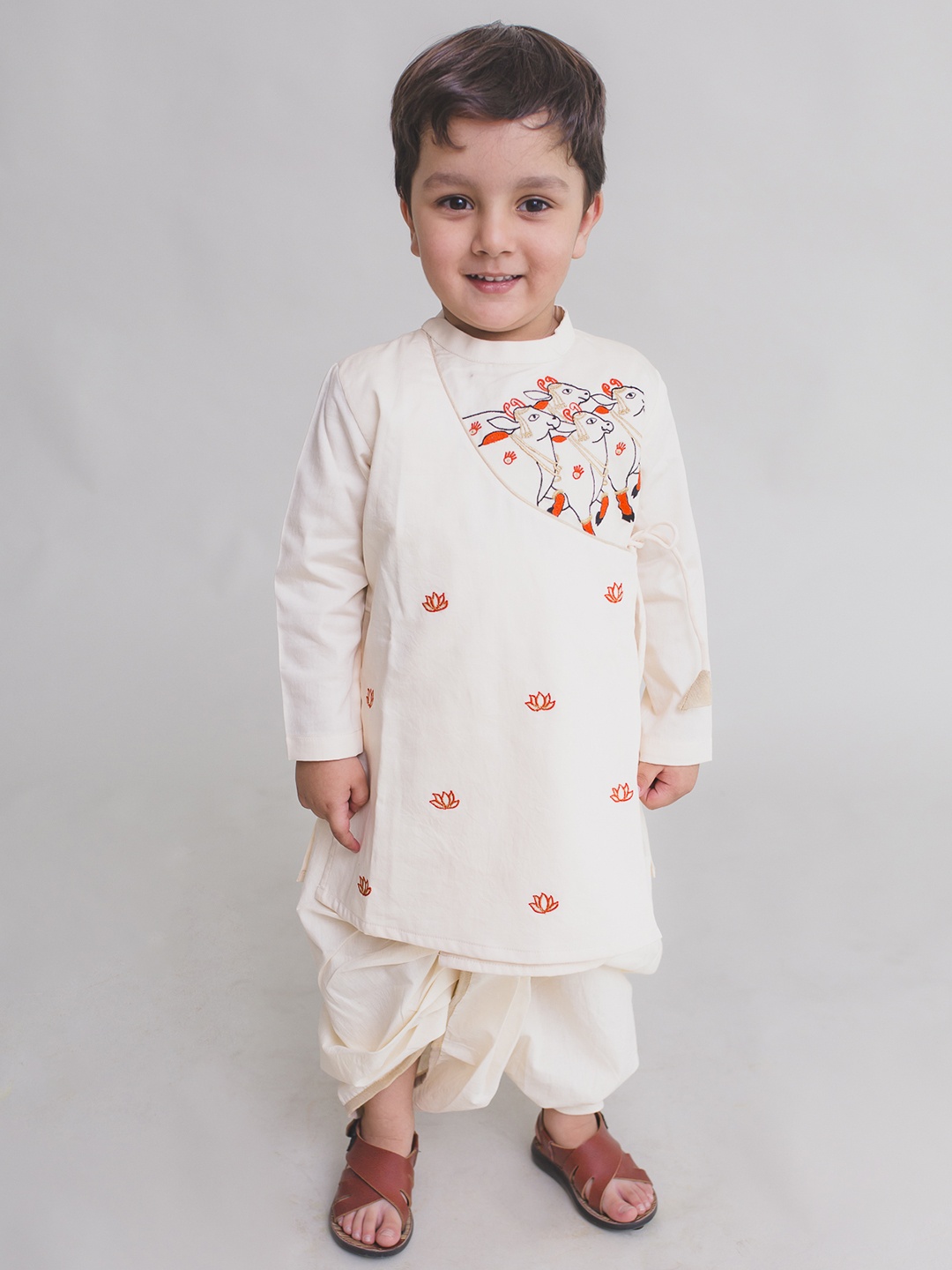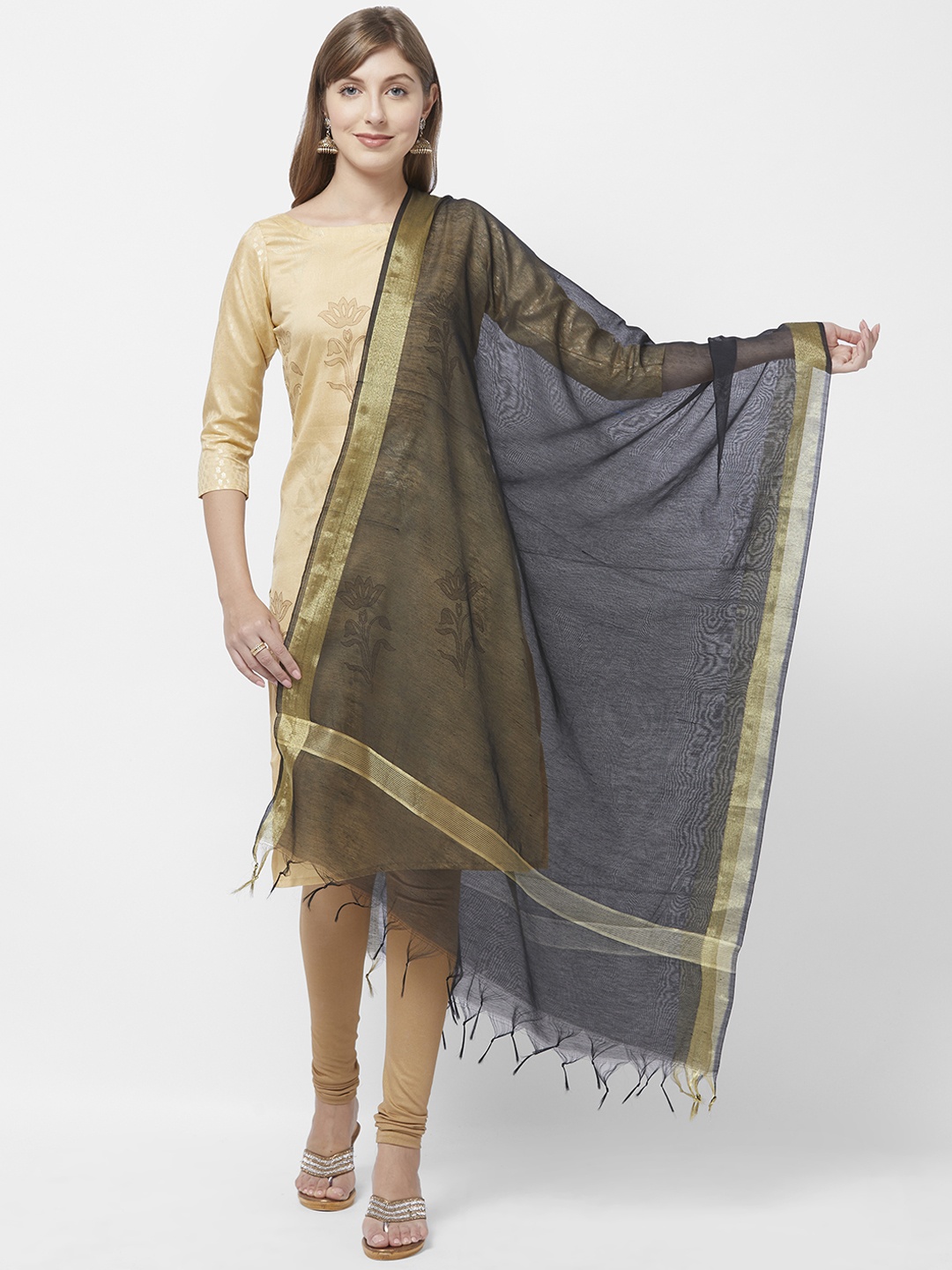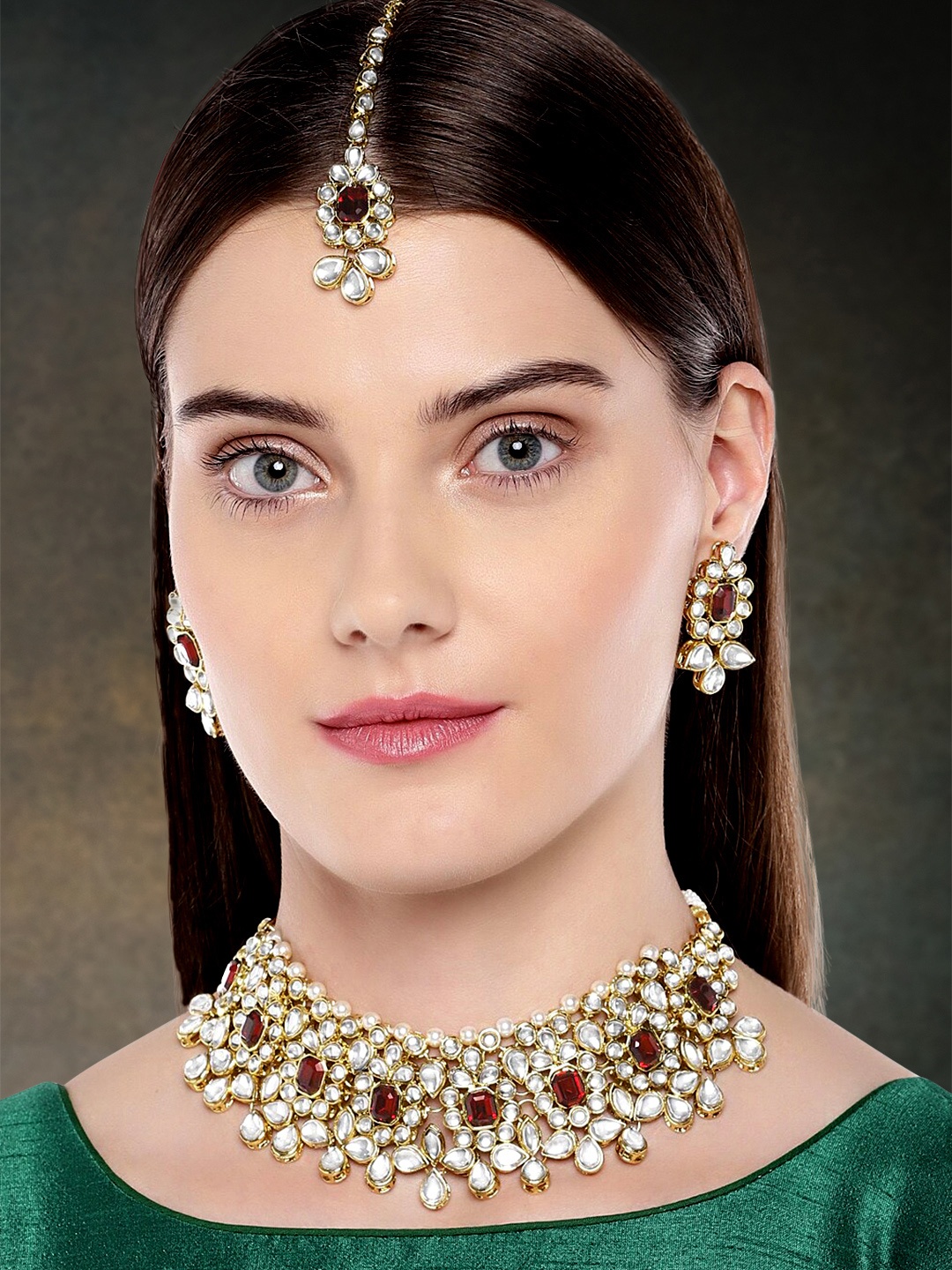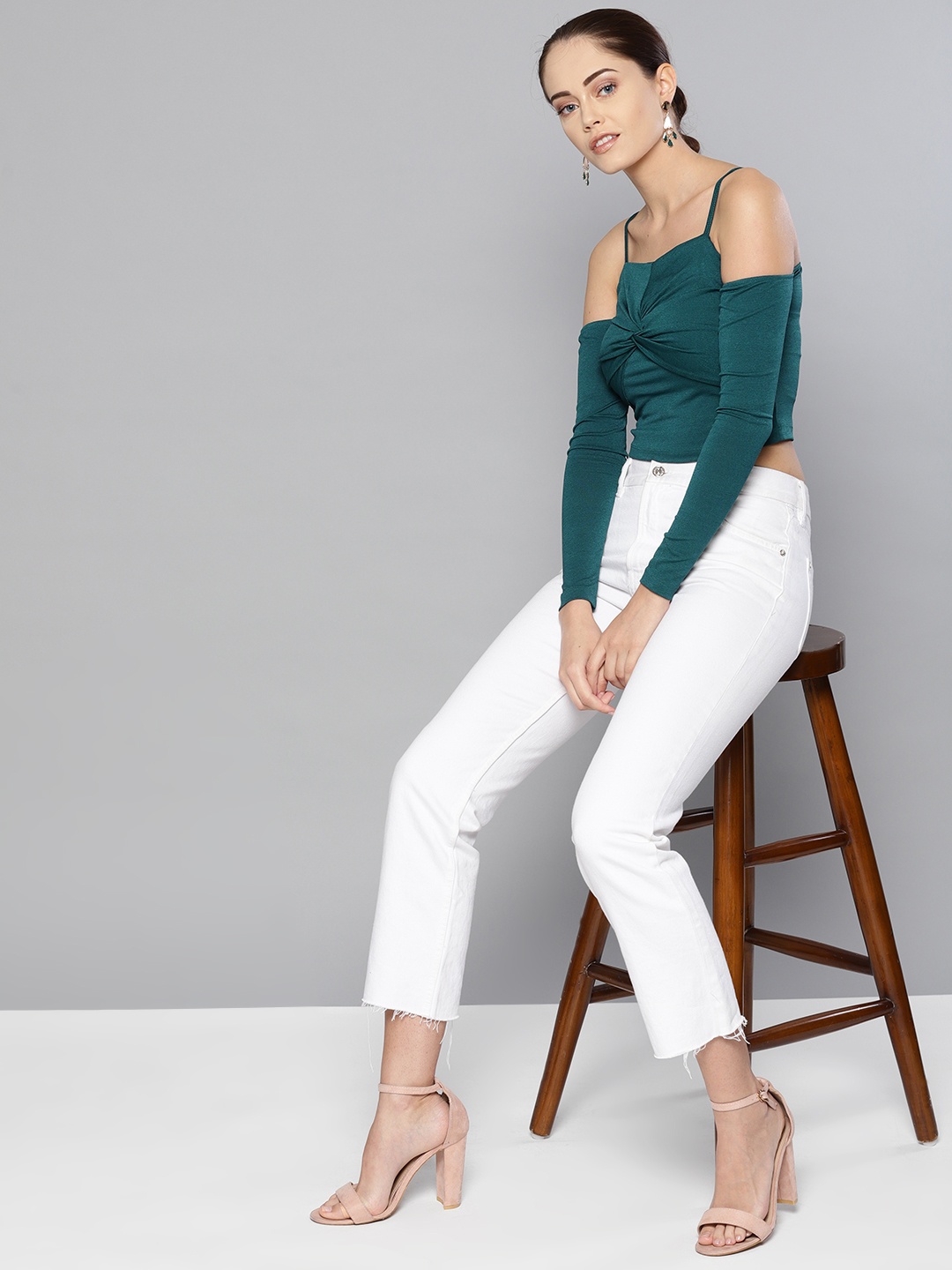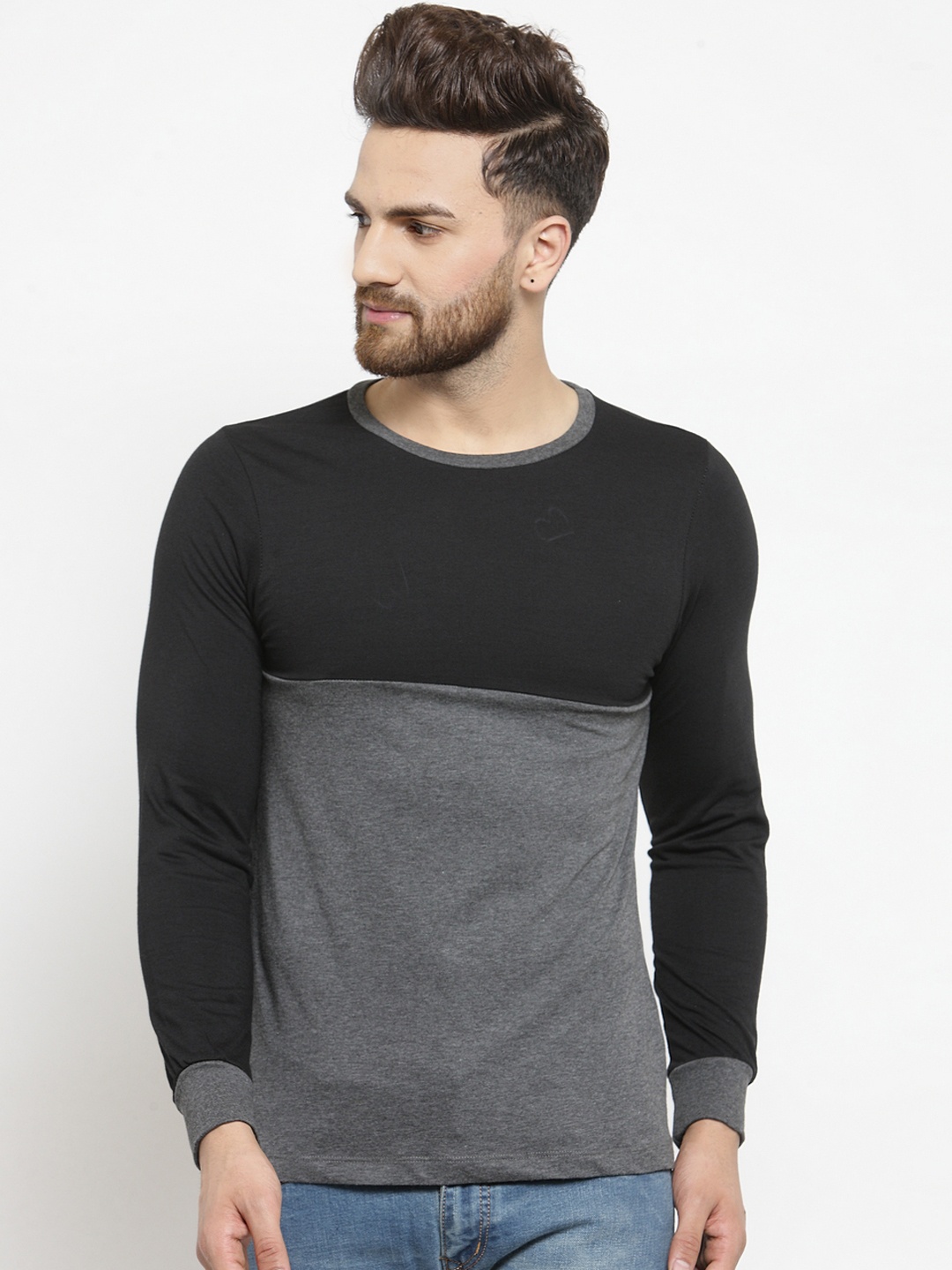Exploring Indian Saree Fabrics: What To Know Before Buying Saree
From everyday cotton sarees to graceful georgettes and chanderi sarees, read all about the different types of Indian saree fabrics. Understand their feel, look, and charm to make your saree shopping easier.

Exploring Indian Saree Fabrics: What To Know Before Buying Saree
Have you ever gone to saree shopping with your mom only to get confused between names like Kanjeevaram, Chanderi, and Banarasi? We get it. Choosing the right saree for your school farewell or an upcoming wedding can be overwhelming. Each saree fabric feels and looks different is made to suit different weathers. Therefore, it is important to understand how each Indian saree fabric drapes and feels on the body. In this guide, you will be exploring the most popular Indian saree fabrics and their crucial details. Let's help you find your dream saree in the right material.
1. Cotton Sarees
Cotton sarees are considered suitable for everyday wear. They are lightweight, breathable, and versatile, making them easy to style for all generations. Because of their starchy fabric texture, cotton sarees tend to last long. While the Indian states of West Bengal and Uttar Pradesh are known for their jamdani cotton sarees, Kerala produces Karaikudi sarees with unbleached cotton.
2. Linen Sarees
Linen sarees have recently started getting traction for their crisp texture and natural sheen. They are ideal for office wear or other formal events. Linen sarees are versatile, sustainable, and sophisticated.
3. Banarasi Silk Sarees
Banarasi silk sarees are perfect to glam up for weddings, anniversaries, and other special occasions. Traditionally handwoven in the city of Varanasi, Uttar Pradesh, these sarees reflect exquisite craftsmanship. They are available in different motifs, patterns, and textures with gold and silver zari craftsmanship for eternal beauty.
4. Kanjeevaram Silk Sarees
Kanjeevaram silk sarees are typically produced in the state of Tamil Nadu. They are identified by their bright colours, gold and silver thread work, and elaborate designs. Due to their high-grade silk and intricate designs, Kanjeevaram silk sarees are generally expensive.
5. Chanderi Sarees
Apart from cotton and linen, Chanderi sarees are also lightweight and breathable in summer. Traditionally made in Madhya Pradesh, these sarees offer a delicate sheen, transparent texture, and a flowy silhouette. They showcase different handwoven motifs like peacocks, florals, and geometric designs.
Also Read: Why Every Indian Wardrobe Needs A Bandhani Saree
6. Chiffon Sarees
Chiffon sarees are known for their grace and flowy silhouette. This lightweight and sheer fabric is woven using twisted yarns, which gives it its unique mesh-like weave. From bold reds to pastel pinks, chiffon sarees are available in various shades to help you glam up for any event. This fabric drapes beautifully and doesn't weigh you down.
7. Georgette Sarees
From heavy embellishments to subtle prints, there are many options in georgette sarees. It is a soft, lightweight fabric, renowned for its crinkled texture. It has a flowy and translucent appearance like that of a chiffon saree. Moreover, georgette sarees are made from either silk or synthetic fibres.
8. Net Sarees
Made from open-mesh fabric, net sarees hug your curves like a glove and accentuate your features. These easy-to-drape sarees come with heavy embellishments and are perfect for parties and weddings.
Also Read: Tie And Dye Sarees Are Back In Trend: Know How To Style Them
9. Tissue Sarees
Tissue sarees are made from the lightweight tissue silk fabric. They offer a soft, delicate texture along with a flowy silhouette and natural sheen. Tissue sarees are particularly loved by younger generations as they are easy to drape and carry. Moreover, their transparent sheerness looks elegant for most occasions.
Products Related To This Article
1. PATLANI STYLE Embroidered Bollywood Net Saree (Brown)
2. YASHIKA Floral Print Bollywood Georgette Saree (Purple)
3. YASHIKA Floral Print Daily Wear Georgette Saree (Dark Blue)
4. MIRCHI FASHION Printed, Floral Print Daily Wear Chiffon, Georgette Saree (Green, Beige, Grey)
5. MIRCHI FASHION Printed, Floral Print Daily Wear Chiffon, Georgette Saree (Red, Black, Pink)
6. yamunaji Digital Print Chanderi Chanderi Saree (Blue)
7. cynor Woven Kanjivaram Art Silk, Pure Silk Saree (Multicolor)
8. KanjiQueen Woven, Self Design Banarasi Silk Blend, Pure Silk Saree (Gold, Pink)
9. ANOUK Printed Saree with Attached Blouse Linen Saree (Pink)
10. SAPTAK FASHION Floral Print Handloom Cotton Blend Saree (Blue)
Frequently Asked Questions On Indian Saree Fabrics (FAQs)
1. How many types of saree fabric are there in India?
There are more than 25-30 types of saree fabrics in India, each offering a different silhouette and style. Among these, silk, cotton, and organza are some of the most popular ones.
2. What are the fabrics used in sarees?
According to sources, there are more than 25 types of fabrics used in India to make sarees. While cotton sarees are known for their comfort and breathability, silk sarees look ethereal for special occasions.
3. Which saree material is best for beginners?
If you have never worn a saree before, it is best to start with cotton blends or georgette. These fabrics are very lightweight, easy to drape, and comfortable to wear.
4. Which saree material is costly?
Generally, pure silk sarees like Kanjivaram or Banarasi are some of the most expensive ones. They are made with high-quality fabric and include fine craftsmanship.
5. Which is the softest saree fabric?
Sarees made of mulberry silk, cotton muslin, satin, and chiffon are considered the softest.
Understanding the different types of Indian saree fabrics can help you pick the right one easily. From the breathability of cotton in summer to the eternal luxurious charm of silk sarees, each fabric brings a unique style and comfort. With so many fabrics, prints, and styles available, choosing the right saree as per the occasion becomes easier. Whether you are dressing up for festivities or trying something new in your dailywear, there is a perfect saree waiting for you.
Disclaimer: The images used in this article are for illustration purpose only. They may not be an exact representation of the products, categories and brands listed in this article.




